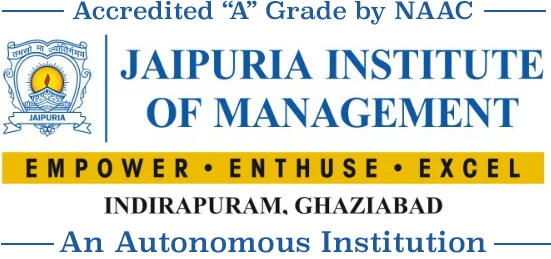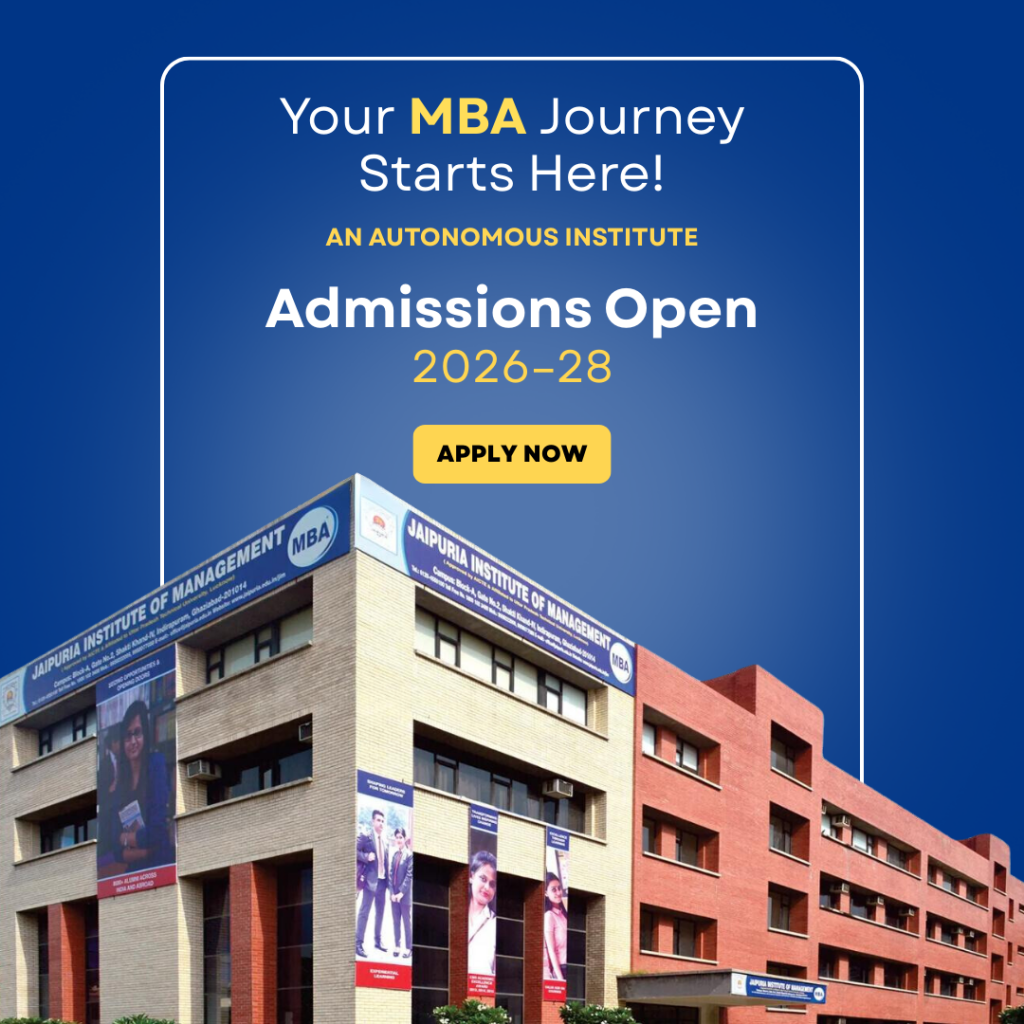I am extremely happy to be here today at this magnificent Convention Center named after Dr Bhim Rao Ambedkar to deliver the First Dr Rajaram Jaipuria Memorial Lecture.
Let me begin with one of my favourite quotes of Babasaheb Ambedkar, the father of Indian Constitution: “An idea needs propagation as much as a plant needs watering. Otherwise, both will wither and die”.
I am therefore glad that the ideals and values which Dr Rajaram Jaipuria upheld all his life have been carefully nurtured by his successors, and we have assembled here today to celebrate his Idea of “Empowering the Next Generations through Quality Education”.
Thirukkural says “The wealth of learning is alone imperishable; nothing else is true wealth”.
Dr Rajaram Jaipuria was an industrialist and educationist at the same time. He selflessly followed a legacy of philanthropic-minded industrialists of the pre-Independence period, who used to set up educational institutions, temples and Rest Houses for pilgrims, driven by a spirit of social service, and not for business.
Following the footsteps of his late father Padma Bhushan Seth Mangturam Jaipuria, who had set up the famous Jaipuria College in Calcutta way back in 1945, Dr Rajaram Jaipuria established many educational institutions all over India, starting with the K-12 School in Kanpur in 1972 and also patronized the Char Dham Ved Nyas, imparting Vedic education in Sanskrit from ‘Prathama’ to ‘Acharya’ levels at five religious centres of India.
He combined the best of East and West, in terms of ‘values’ and ‘scientific advancements’ in the curriculum and pedagogy in all the academic institutions that he had established. I am very pleased to note that the Jaipuria Group logo carries one of my favourite quotes from Brihadaranyaka Upanishad: ”Tamaso Ma Jyotir Gamaya” ie, “Lead us from darkness to light”.
The theme of today’s lecture has been aptly chosen by the Organizers–Education, Entrepreneurship & Ethics.
Today, we are living in the era of Industry 4.0. In this era, India has a real chance to progress faster and bridge the development gap with the most of the developed nations. We missed the first three Industrial Revolutions as we were too late to catch up with the West.
But, thanks to the new digital age and the genius of young Indians, we stand a real chance to surge ahead and take the lead, given our demographic advantage. Industry 4.0 is also called the Knowledge Economy. The language of the new economy is digital and I am quite confident that our youth will take charge of New Digital India and take the country to new heights.
Apart from Bengaluru and Hyderabad, almost every city in India is evolving into a Silicon Valley. India is already home to one third of all start ups in the World, next only to China and the USA.
We are no longer strangers to words like Artificial Intelligence, Internet of Things, Big Data, Cloud Computing, 3D Printing, Block chain, Machine Learning and Design Thinking. Most of the new startups are powered by these technologies. I am happy to note that you are already having the Atal Tinkering Labs in your schools.
Dear sisters and brothers, India is the fastest growing economy in the world today and we are on the path to becoming the third largest economy 10-15 years. Since 1991, at current prices in dollar terms, we are growing at over 8.7% CAGR and our per capita income is growing at 7% CAGR. Our literacy rate has improved from 52% in 1991 to 79% in 2018. The prospects look quite bright.
India has a huge population of 1.35 billion with a per capita average annual income of $1928 and average life expectancy of 69 years, but the good news is 66% of our population will be in the age group of 15 to 64 by 2020 and the working population will remain at same level or higher until 2060. The average age of Indians in 2020 will be only 29 years as compared to China and USA at 37%, Europe at 44% and Japan at 50%. This means India will remain much younger compared to the population in already developed large economies like China, Europe and USA, for next four decades.
It is believed that there would be a shortage of skilled workers globally in a rapidly ageing world. By ensuring skill development and imparting latest training in various vocations to the youth, India can cater to the global requirements of skilled workforce, apart from meeting the demand within the country.
The demographic advantage is tilted towards India now. However, the demographic advantage can turn into a demographic dividend only if we focus on skill development and continuous upgradation of Knowledge and Skills. I am sure that the National Policy on Skill Development and Entrepreneurship will address all the challenges of skilling, while the National Skills Qualifications Framework (NSQF) will help standardize and integrate the skill component of the people with the formal learning arrangement.
Students can learn from anywhere in real time now. Technology has effectively broken the barriers of distance through different mediums. We are now living in an Information and Communication Technology-driven world and imparting ICT- enabled education has become the sine qua non of the modern society. In fact, ICT revolution is triggering a paradigm shift in the education sector.
As you are aware, the platform of Massive Online Open Courses (MOOCs) is revolutionizing learning and knowledge dissemination. India’s SWAYAM MOOCs platform has emerged as the World’s Largest Online Free E-Learning Platform Portal. It is designed to achieve access, equity and quality in education at all levels. Again under the SWAYAM PRABHA programme, high-quality educational programmes are being telecast through the DTH channels. Further the MHRD under its National Mission on Education through ICT (NME-ICT) has initiated the e-Pathshala. The interactive e-content covers around 70 subjects across all disciplines of social sciences, arts, fine arts, humanities, mathematics, linguistics and languages.
India faces a challenge regarding student enrolment and drop outs. Although, our Gross Enrolment Ratio (GER) has improved to 25.8 per cent, it lags behind the global average of 33 percent and those of the emerging economies like Brazil (46 percent), Russia (78 percent) and China (36 percent). Mere literacy is not going to increase employability but skill-literacy shall. The Government initiatives on skill-literacy have to be supported by private institutions. I look forward to a strong participation by the Jaipuria Group in promoting skill-literacy in India.
Technology can bridge the GER gap. For example the Jaipuria Campuses can train many times its current 15000 strength by offering a helping hand to remote students in e-learning mode. A village school which has teachers and physical infrastructure up to primary level can offer education up to high school level in distant learning mode with virtual laboratories and conduct simulated experiments. Traditional craft schools up to high school level can be opened with resources naturally available in each village.
The syllabus and curriculum, and the pedagogy have to be revamped using design thinking and creativity. Rote learning has to be replaced by Action learning.
The use of ICTs has made lives of millions of Indian comfortable now in most areas of their engagement—be it agriculture, industry, business or service.
The time has now come for India to re-establish itself as a knowledge and innovation hub. For that to happen, we have to completely overhaul our higher education system to cater to the fast changing requirements of the 21st century in different sectors. Apart from remoulding the syllabi and pedagogy, the stress should be on learning-by-doing. Greater focus should be on instilling entrepreneurial spirit among the students. This calls for exposure to industrial ecosystem and our educational institutions should develop organic linkages with local industries and ensure that students undergo internships in them as part of the course. We need more and more job creators and not job seekers and our education system should revamp its curricula in accordance with this requirement.
Already India has earned the distinction of being the second largest start-up hub in the world and we need to make India the numero uno in start-ups.
Another all-important aspect is the need for an education system that lays a strong foundation for progress of the society to be grounded in an unwavering commitment to morals, ethics and values of humanism. Unfortunately, we are witnessing an all-round degeneration in ethical and moral outlook in different walks of life. Education will have to play a big role in arresting this undesirable trend. Let us recall the sagacious words of the Father of the Nation, Mahatma Gandhi, who had said: “Education which does not mould character is absolutely worthless”.
For ages, India was the Vishwa Guru. Our famous universities like Takhashila and Nalanda threw open their doors to students and scholars from other regions. In tune with our age-old ideal , “Vasudhaiva Kutumbakam”, we always believed in sharing knowledge with the global community.
Education is the most vital engine of development and the best gift you can ever give to the children and youth for continuous progress of civilization and prosperity of humanity.
Sisters and brothers,
All of us owe a lot to our native place. Parents and teachers who shaped our careers. We as individuals must develop the habit of dedicating some time towards the welfare of the society.
Our ancient philosophy teaches us the value of caring and sharing. It is the collective responsibility of every citizen to do his bit to bring in a positive change in the lives of people. Every individual irrespective of position, post and political views must work for the welfare of others, empowering women and the weaker sections should be accorded highest priority. Memorial lectures provide an opportunity to recollect the service done by the great individuals and draw inspiration from their lives.
We should use these lectures as platform to motivate youth and guide them in the right direction. We must encourage the youth to adhere to traditions of tolerance and respect and protect the country’s pluralistic culture. India of the future should be powered by the dreams, ambitions, character and competence of young people.
We need to cultivate a culture of healthy and civilized discussion on many of the pressing problems such as class and gender inequalities, illiteracy, poverty, climate change, and the needs of the less privileged in society.
Education which is the most important component in nation building must be given utmost priority. A rethink is needed on the education system to revamp syllabus to suit to the needs of 21st century knowledge economy.
Education must teach the children aspects such as service, and volunteerism. It must make students to be sensitive to the needs and sufferings of others.
We must inculcate a sense of oneness among the children by teaching them about the diverse and rich heritage and culture of our great nation. Inspiring Stories of freedom fighters, social reformers and biographies of eminent scientists must be made part of the curriculum so that the young get motivated by reading about the lives of great men.
Dear Students,
Before I conclude, I would like to say, with Indian economy on the rise, all of you will have plenty of avenues and opportunities and you should seize them. Remember the advice of former President A P J Abdul Kalam to dream high and work with dedication to realize your dreams and build a New India, which shall be free of poverty, illiteracy, fear, corruption, hunger and discrimination
Let me congratulate the Jaipuria Group of Educational Institutions for organizing this Memorial Lecture in the name and memory of a great Industrialist, Educationist, Entrepreneur, Philanthropist and above all a great human being.
I am happy to join you all today to celebrate the gift of Dr Rajaram Jaipuria to posterity.





